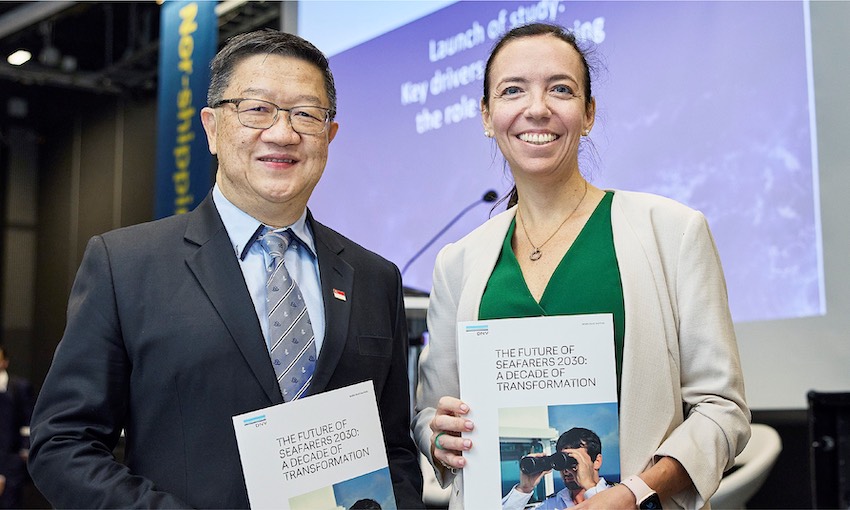A SURVEY of 500 seafarers found the maritime workforce needs more training to work in a decarbonised and digitalised shipping industry.
DNV and the Singapore Maritime Foundation published the survey findings in their new report, The future of Seafarers 2030: A decade of transformation.
The study set out to examine the key drivers transforming the maritime industry and their impact on ship management and seafarers.
The participating seafarers worked on dry bulk, tanker and container vessels around the world.
Of those surveyed, 81% indicated they’d need either partial or complete training to work with the advanced technology on future ships.
More than 75% said they’d require partial or complete training around new fuel types such as LNG, batteries or synthetic fuels.
That training deficit rose to 87% for emerging fuels such as ammonia, hydrogen and methanol.
The report also highlighted a need to consider remote shore monitoring in the future as automation grows.
Cristina Saenz de Santa Maria, DNV’s regional manager South East Asia, Pacific and India, maritime, said it is essential that shipowners and managers understand the new challenges and opportunities decarbonisation and digitalisation present.
“Proper training and industry collaboration will be imperative to ensure seafarers are equipped with the competence and skills to operate ships using new fuels and technologies in a safe and efficient manner,” she said.
“Upskilling seafarers will not only enable them to execute additional monitoring and maintenance tasks onboard but can also be leveraged upon to improve attraction and retention in the industry.”
SMF chairman Hor Weng Yew said the work done in this decade would complement shipping community’s efforts to meet the 2050 net-zero target.
“It is essential that we begin by understanding where the competency gaps are, areas of training most needed, and then work as an industry to equip sea-going professionals with the transition and future skills needed to safely and effectively operate the new-fuelled types of ships that are coming into service.”
The study recommended prioritising seafarer training for the fuels most likely to be predominant in the current decade, capitalising on accessible, modern training methods to improve skill deficits.
It also suggested upskilling opportunities for seafarers would improve with decarbonisation and digitalisation trends, as complementary shore-based roles are expected to become prevalent.
The study was handed over to SMF at during the Nor-Shipping 2023 exhibition in Oslo.

